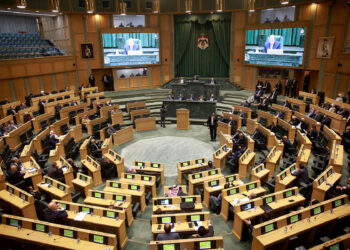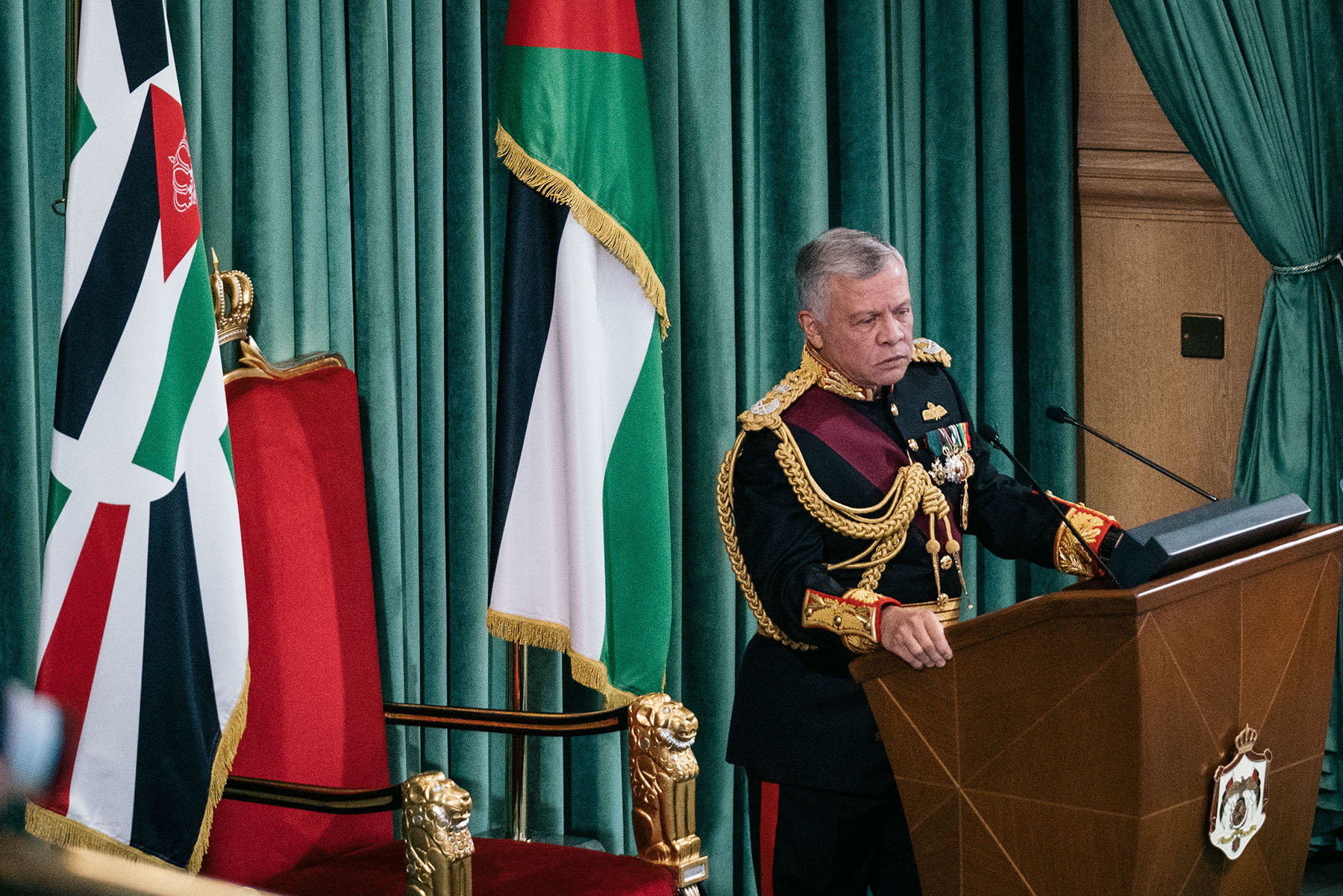Emily Milliken is the senior vice president and lead analyst at Askari Associates, a Middle East-focused defense and intelligence consultancy, and a junior fellow at the American Foreign Policy Council.
When Yemen's truce expired on Oct. 2, the two main sides in its war—the internationally recognized government, based in Aden and supported by Saudi Arabia and other Gulf countries, and Iran-backed Houthi rebels who control the capital, Sanaa—traded blame for the expiration of the U.N.-brokered agreement. The truce had initially been implemented in April and twice extended, in June and August. Maintaining that the truce came to a "dead end," the Houthis called for a full lifting of the Saudi-led blockade of Hodeidah, Yemen's main port, and a complete reopening of the international airport in Sanaa, which under the truce saw a limited number of commercial flights in and out of the capital for the first time in six years. The Yemeni government, along with its regional and international backers, rejected those demands as "maximalist and impossible," in the words of the U.S. special envoy for Yemen, Tim Lenderking.
Fortunately, the warring parties are mostly continuing to adhere to the truce's terms for now, despite its collapse, and are still permitting mediation to continue under U.N. auspices. But the end of the truce has put Yemen in a new state of uncertainty. Although all-out warfare has not broken out again, there are serious concerns it might at any point. The recent Houthi drone attack on Oct. 21 against the al-Dhabba oil terminal in southern Yemen, in Hadhramaut province, constituted the first serious escalation since the truce's collapse, adding to those fears.
During the six months that the truce was in place, there was long-overdue humanitarian progress in Yemen. Civilian casualties decreased significantly, millions of Yemenis benefited from increased aid relief, humanitarian groups entered the country with far greater ease, and previously restricted flights carrying those in need of urgent medical care abroad were able to enter and leave the country.
"The current limbo-state is concerning because it could just as easily return to war as it could continue with the truce."
- Veena Ali-Khan, International Crisis Group
"The temporary cessation of hostilities in Yemen, the longest since the start of the war, has given Yemeni civilians much-needed breathing room after eight years of war," said Veena Ali-Khan, a Yemen researcher at the International Crisis Group. "The establishment of the truce certainly marked a positive step towards broader political negotiations, and the current limbo-state is concerning because it could just as easily return to war as it could continue with the truce."
Despite that humanitarian relief, however, the situation in Yemen under the truce remained tense and difficult, with the Houthis and the Saudi-led coalition accusing each other of truce violations. The Houthis refused to lift their long blockade on Taiz, Yemen's third-largest city, making it dangerous for civilians to leave the area and access medical care and aid. The Saudi-led coalition was slow to allow the full, agreed-upon number of fuel ships into blockaded Hodeidah and civilian flights out of Sanaa's airport. The situation in besieged Taiz, especially, and the lack of progress on other contentious issues—such as the management of income and salaries for public employees, thousands of whom have not been paid in years—led to the truce's ultimate expiration. At the same time, some fundamental questions about Yemen's war, such as the Houthis' ultimate endgame, remained wide open.
The United Nations, the United States, the United Kingdom and others in the international community are all currently calling for the truce to be put back in place. Yet doing so would require convincing powerful stakeholders in Yemen, chiefly the Houthis, that they could benefit from restoring the truce—a challenge, to say the least. The Houthis view the status quo as favorable to them. The Iran-backed rebels extracted considerable benefits from the truce, with the lull in violence allowing them to prepare for a resumption in fighting and fortify their positions on various frontlines. The Houthis now feel that they have recouped enough strength that they can gain more from the truce's expiration than its extension.
"The Houthis rightly perceive that they have the upper hand in the war," said Thomas Juneau, an associate professor at the University of Ottawa's Graduate School of Public and International Affairs and a non-resident fellow with the Sana'a Center for Strategic Studies. "From their perspective, it is therefore rational to seek to continue the war and to postpone serious negotiations, since they believe that a settlement farther down the road will offer better conditions for them than today."
Elisabeth Kendall, a Yemen expert at Girton College at the University of Cambridge, echoed that view. "The Houthis appear to feel that their position has strengthened over the last six months since the truce was first implemented," she said. "The Saudi-led coalition has made significant concessions, such as ceasing airstrikes, opening Sanaa airport to some commercial flights, recognizing Houthi-issued passports, and allowing more fuel ships to arrive."
During the truce, the Houthis halted missile and drone strikes across the border into Saudi Arabia, which they have not resumed since the truce ended. But the Houthis did not make the most significant concession on their end during the six-month lull in violence: easing the siege of Taiz—one of the key points of the truce agreement. That illustrated the weakness of international leverage over the Houthis.
"The Houthis have benefited from the truce whilst making few concessions," Kendall added. "Most significantly, they have rejected successive U.N. proposals to open roads to besieged Taiz. Escalating Houthi demands in the run-up to the truce renewal deadline were unrealistic in the absence of a structured peace process. They looked like a deliberate attempt by the Houthis to re-escalate the conflict."
"Bringing the truce back without ensuring that there is a clear roadmap towards a resolution of the conflict is just one more band-aid to the Yemen crisis."
- Sherine El Taraboulsi-McCarthy, NatCen International
Adding to the Houthis' strength on the ground, the U.N.-recognized government is suffering from its own internal divisions that are undermining its ability to fight its main rival in Yemen's multi-sided war. Clashes in southern Yemen between different anti-Houthi forces during the truce period were just one example of such disunity. "The government remains highly fragmented and disunited," Juneau said. "As long as this is the case, the Houthis will maintain the advantage."
New tensions between the U.S. and Saudi Arabia, the chief backer of the Yemeni government in Aden, drastically heated up this month, with implications for Yemen. Three days after the truce expired, the OPEC+ cartel announced its decision to cut oil production by 2 million barrels a day, sparking a major backlash in Washington from the Biden administration and Democrats in Congress, on the eve of midterm elections. The public rancor between Washington and Riyadh can increase Houthi confidence.
"The oil production cuts announced by OPEC+ play into the hands of Yemen's Houthis," Kendall said. "It increases the skepticism and hostility among U.S. lawmakers towards Saudi Arabia. This could jeopardize U.S. arms sales and military support for the Saudi-led coalition's campaign in Yemen. It also makes it even less likely that the U.S. will re-designate the Houthis as a Foreign Terrorist Organization, something that both Saudi and the UAE had been lobbying for."
Russia's invasion of Ukraine, meanwhile, has hit Yemen hard—by cutting off already-scare food supplies like wheat, as Yemen depended on Ukraine for 40 percent of its grain. Grain and food imports from other countries have gotten more expensive, along with fuel prices. All of that is weighing on Yemeni civilians, who continue to suffer from starvation, malnutrition and other impacts of the war. Last month, the U.N. said it had secured only $2 billion of the nearly $4.3 billion it needs to provide life-saving humanitarian assistance to nearly 18 million Yemenis.
To avert an even worse humanitarian disaster, U.N. agencies and donors in Western countries must work toward finding solutions to Yemen's unresolved political issues in the hopes of securing a lasting peace, not just another pause in the fighting. "Bringing the truce back without ensuring that there is a clear roadmap towards a resolution of the conflict is just one more band-aid to the Yemen crisis," said Sherine El Taraboulsi-McCarthy, the director of NatCen International, a global social policy program at the National Centre for Social Research in the U.K. "Yemenis want and need sustainable peace."
But that will require taking stock of how international affairs, particularly in relation to the war in Ukraine and worsening food insecurity in Africa and the Middle East, have changed since the truce was struck in early April.
"With the war in Ukraine and its impact on the global economy, the pressure on Yemen's already devastated economy has increased. Donor support has also waned significantly and alarmingly," El Taraboulsi-McCarthy said. "The international community should get better at considering how all of Yemen's challenges are interconnected—political, economic, social, humanitarian—and how they have changed."































![Security forces loyal to the interim Syrian government stand guard at a checkpoint previously held by supporters of deposed president Bashar al-Assad, in the town of Hmeimim, in the coastal province of Latakia, on March 11, 2025. Syria's new authorities announced on March 10, the end of an operation against loyalists of deposed president Bashar al-Assad, after a war monitor reported more than 1,000 civilians killed in the worst violence since his overthrow. The Syrian Observatory for Human Rights said the overwhelming majority of the 1,068 civilians killed since March 6, were members of the Alawite minority who were executed by the security forces or allied groups. (Photo by OMAR HAJ KADOUR / AFP) / “The erroneous mention[s] appearing in the metadata of this photo by OMAR HAJ KADOUR has been modified in AFP systems in the following manner: [Hmeimim] instead of [Ayn Shiqaq]. Please immediately remove the erroneous mention[s] from all your online services and delete it (them) from your servers. If you have been authorized by AFP to distribute it (them) to third parties, please ensure that the same actions are carried out by them. Failure to promptly comply with these instructions will entail liability on your part for any continued or post notification usage. Therefore we thank you very much for all your attention and prompt action. We are sorry for the inconvenience this notification may cause and remain at your disposal for any further information you may require.”](https://dawnmena.org/wp-content/uploads/2025/04/syria-22039885951-360x180.jpg)






